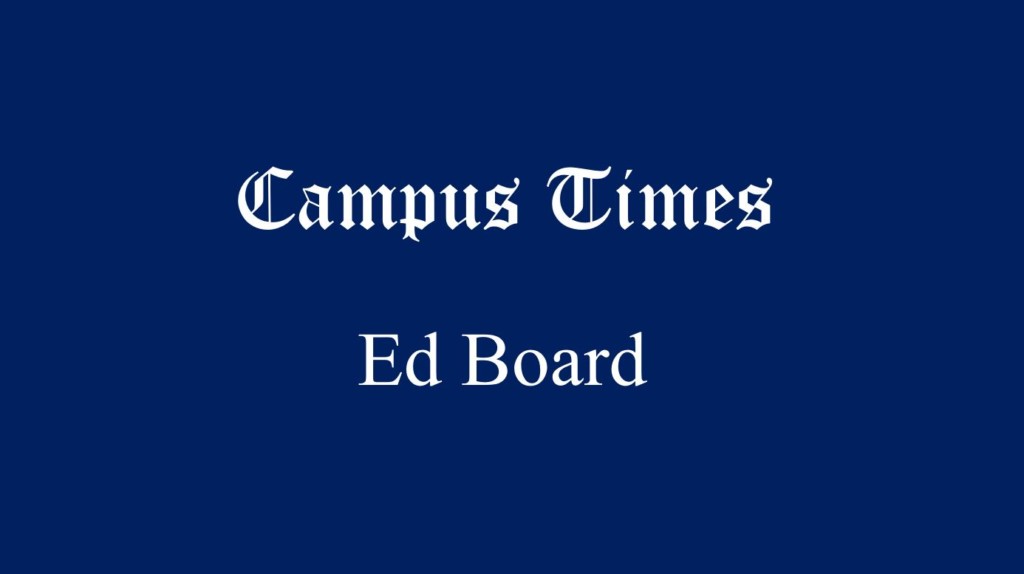College journalism has come under fire at some schools recently, as basic and ancient tenets of our practice are being re-interpreted as insensitive. We thought it was worth taking some time to revisit why we have the principles we do, and in what way they protect truth and freedom.
On Nov. 11, The Daily Northwestern (Northwestern University’s student newspaper) issues an apology for its coverage of a campus speech by former Attorney General Jeff Sessions.
Student protestors got into a conflict with police as they tried to enter a building, and a student was knocked over in the process. A photograph of this incident was included in the paper’s coverage and posted on social media by one of the journalists.
But, soon after, students protested against the Daily Northwestern’s coverage of the event, saying that it re-traumatized them and that their privacy was invaded, both because of the photos and because reporters texted students who participated for comment.
After the student outcry, the paper decided to take down the photo and issued a formal apology for any damage caused, and for asking students for comment over text using phone numbers obtained through the student directory.
Since we have not seen the photo in question, we can’t really comment on it. Journalists should always do their best to minimize harm in their reporting, but whether the photo coverage of this event caused harm is not for us to say.
On the matter of texting people to request a comment, however, we can take a harder stance. We can’t tell stories properly if we don’t talk to people. In order to talk to people, we need to contact them. To say that contacting subjects is an invasion of privacy is to jeopardize a necessary, if difficult, part of the process.
Another recent controversy in college journalism was the backlash against the Harvard Crimson for reaching out to Immigration and Customs Enforcement for comment on an anti-ICE rally. (ICE didn’t respond to the request.) This was on the grounds that ICE is known to retaliate against its detractors.
But if a big anti-ICE rally happens at Harvard, ICE is going to know, regardless of whether or not the Crimson covers the story. If there are undocumented students attending the rally, they are already affiliating themselves with anti-ICE sentiments. The students directly named in the article all hold named positions, such as co-directors and co-chairs, for the immigrant advocacy group that put on the rally. Their names are already formally and publicly tied to the rally. So the Harvard Crimson never jeopardized anyone, and they are right to not apologize.
And barring any real concern of that, the fierce backlash seems to indicate that students have moral objections to the newspaper calling ICE for comment. But whatever your beliefs are on ICE, hearing from both sides is an essential component of reporting. Talking to all sides of the story is how journalists stay fair.
There is a pervasive, stifling belief that if you don’t like an idea, you should work to suffocate it. This is emulated in the policy of no platforming, which was created to avoid giving credibility to speakers with racist or fascist rhetoric, but which sometimes seems to creep beyond these bounds to include any idea that makes us angry. For people who agree with this sentiment, media coverage can be seen as legitimizing reprehensible things.
One of the Campus Times’ encounters with this includes our coverage of Chris Hodgman, the alleged white supremacist from last semester. Some were critical of our decision to feature some of the material Hodgman had littered around campus in the interest of not giving the rhetoric a platform. The new approach to journalists sees media coverage as inadvertently permitting these absolutely reprehensible things. But it’s not.
In cases like Hodgman, our job is to be fair and accurate, not self-selecting. What do we achieve by not talking about the issue? Problematic opinions will remain whether or not the media covers them, but ignoring them only helps them to fester unexamined.
But in all coverage we must weigh any harm we may cause against the value of the stories we tell. It’s a conversation we’re always happy to have.
Correction (11/24/19): An earlier version of this article misspelled, in one instance, the last name of the alleged white supremacist student who was arrested last semester. His name is in fact Hodgman, not Hodgeman.


